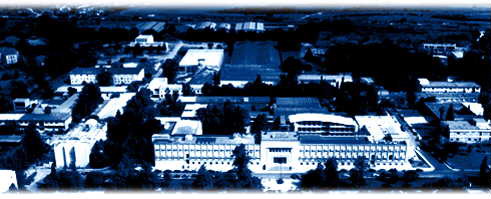
A presentation of the
National Laboratory for Civil Engineering (LNEC)
Laboratório Nacional de Engenharia Civil (LNEC) in Lisbon, Portugal, is a public research institute encompassing virtually all branches of civil and materials engineering, including the conservation of the built heritage.
LNEC was founded in November 1946 but incorporated a materials testing laboratory founded in 1898 and may thus claim an older ancestry. The library of that first laboratory made up the original bibliographic core of LNEC and so its library, the largest of its kind in the country, includes a wealth of XIX century publications that are today an important resource for studies in the conservation field.
LNEC is a leading organization in several fields including earthquake-resistant structures. Its 40ton 3-degree of freedom shaking table, which was designed in-house, is used by researchers from all over Europe. LNEC has a long experience in laboratory and field experimental research, physical and mathematical modeling, and assessment of risk and evaluation of safety conditions of all sorts of engineering works.
Trainees receive a scholarship funded or co-funded by LNEC. Their training includes the participation in research projects, laboratory work and field work- usually within the scope of contract work for paying clients, public and private alike. A project will eventually be chosen for a thesis at the M.Sc. level. Several years later a major project will likewise be chosen for a thesis at the Ph.D. level. All theses are presented at universities, in Portugal or in any country where the best conditions of technology and know-how may be found. After obtaining a Ph.D. degree the trainee may finally apply to become a LNEC researcher. During his career he will be trusted with increasing responsibilities in the management of research and contract projects and will go on to eventually try for career advancement based on an independent examination of his curriculum and on the defence of a major research proposal.
Present workforce is of about 700 employees, of which around 300 have education at university level and 150 are LNEC researchers.
The modern and sizable testing facilities at LNEC are at the disposal of external researchers and research teams to develop projects within the scope of LNEC Programs.
